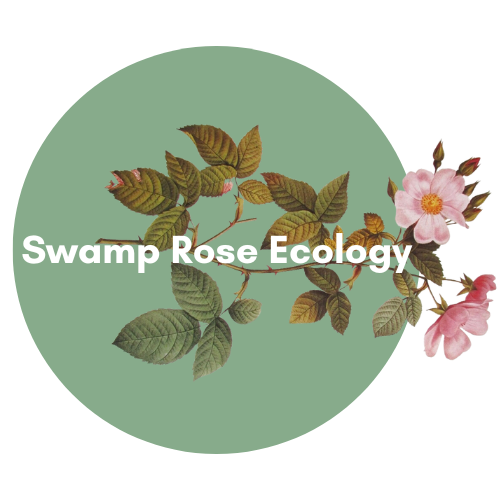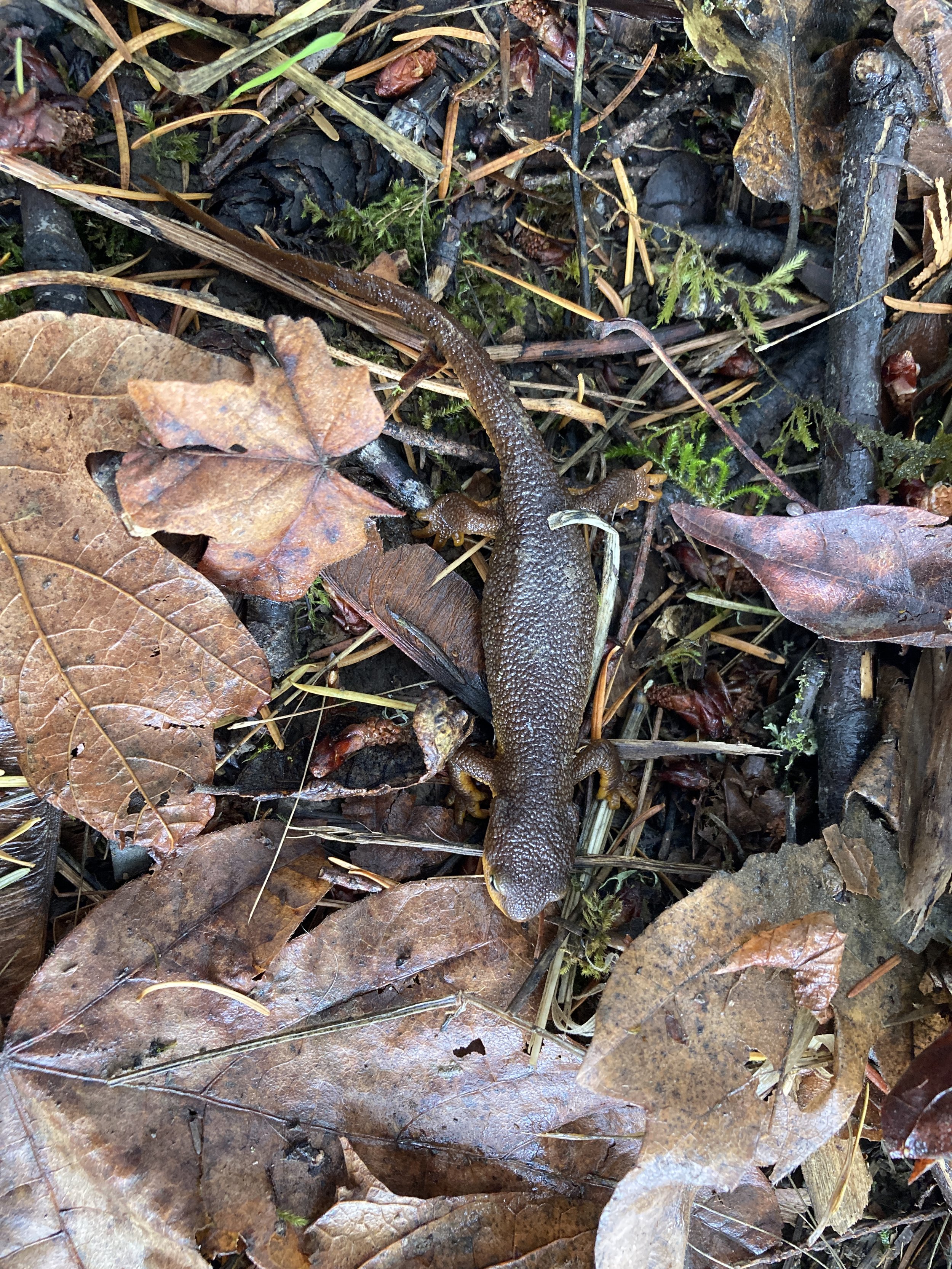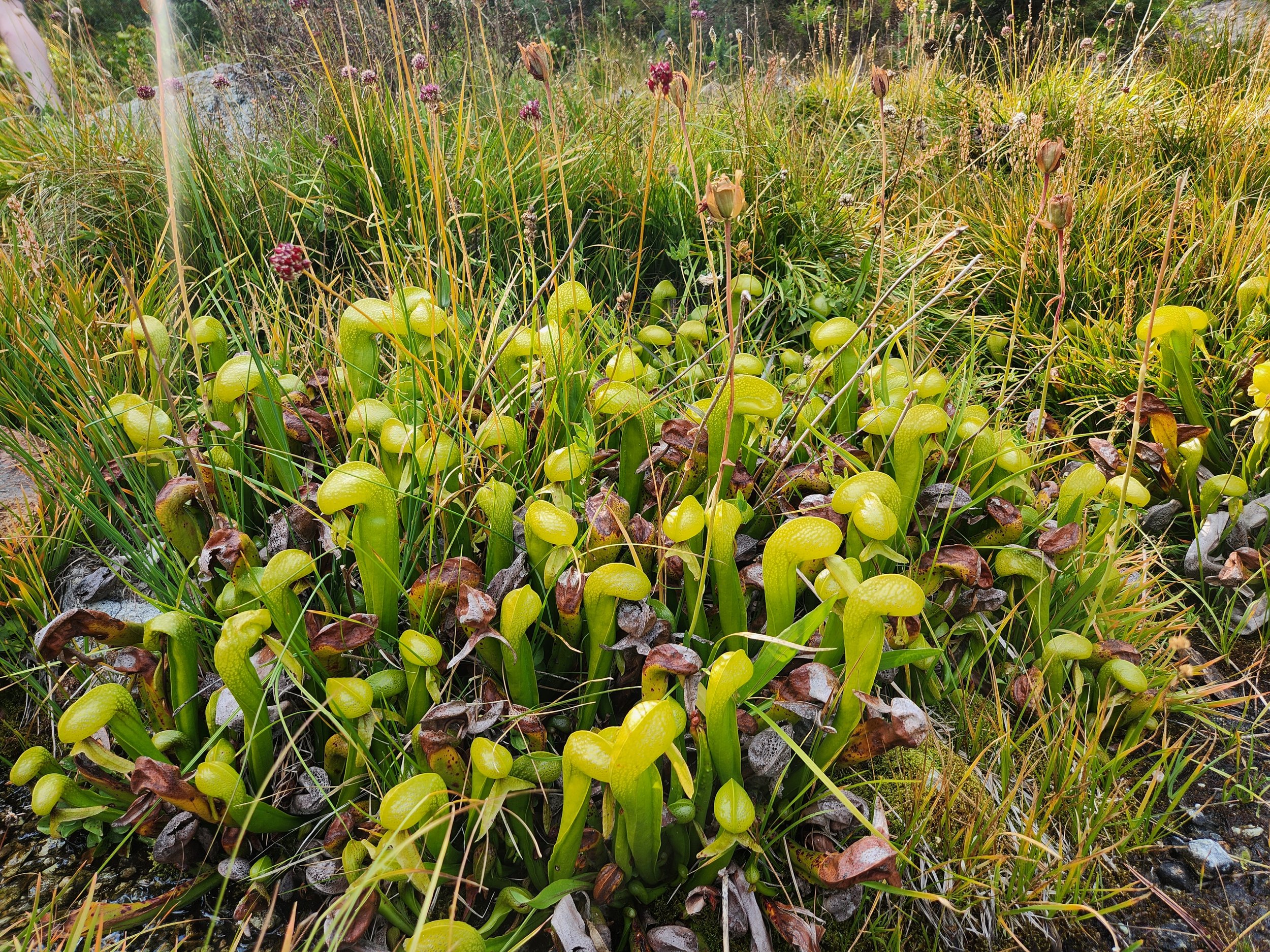

Other Services
-
We specialize in conducting habitat surveys to assess and document the characteristics and quality of various ecosystems. Our surveys encompass a wide range of habitats, including forests, wetlands, grasslands, riparian areas, and more. By using rigorous standards for evaluating factors such as vegetation composition, wildlife presence, soil types, and geomorphic features, we provide a comprehensive understanding of habitat suitability and ecological integrity.
If you would like to survey for a species or habitat that we don’t have listed, contact us to see if we can help.
-
We employ cutting-edge environmental DNA (eDNA) sampling techniques to detect and quantify species presence in various ecosystems without the need for direct observation or specimen collection. Our trained professionals meticulously collect water or soil samples from targeted habitats, ensuring minimal disturbance and maximum yield of genetic material. This non-invasive, highly sensitive method allows us to monitor biodiversity, detect elusive or rare species, and assess ecosystem health with precision and efficiency, supporting informed conservation and management decisions.
-
Biodiversity Monitoring:
Understanding and conserving biodiversity is fundamental to maintaining healthy ecosystems. Our team has the skills and knowledge to design and implement biodiversity monitoring programs tailored to your specific needs. By utilizing standardized sampling protocols, statistical analyses, and cutting-edge monitoring techniques, we help track changes in species populations, assess ecological trends, and evaluate the effectiveness of conservation efforts.
-
Our expertise extends to conducting detailed vegetation surveys that provide crucial insights into plant species composition, diversity, and distribution patterns within a given area. These surveys utilize rigorous sampling methods and botanical expertise to identify and document plant communities, including rare or endangered species. The information gathered helps assess the health of ecosystems, monitor changes over time, and inform conservation and restoration strategies.
-
Understanding the Certifications:
1. LIVE (Low Input Viticulture and Enology) Certified Sustainable:
LIVE is a rigorous certification program that promotes wine grape growers to implement sustainable vineyard practices. This certification ensures that both the environment and the community benefit from a vineyard's practices. The standards encompass various aspects of winemaking, from soil and water management to energy use and human resources.
2. Salmon Safe Sustainability Certification:
Salmon Safe focuses on preserving water quality and safeguarding native salmon. Certified vineyards and farms must meet strict standards that ensure agricultural practices do not harm waterways or the wild salmon that inhabit them.
Our Role in Your Sustainability Journey:
If you are a vineyard or other agricultural enterprise looking to obtain these certifications, our team of experts is here to guide and assist you. Here's how we can help:
1. Comprehensive Assessment: We evaluate your current practices to determine how closely aligned they are with LIVE and Salmon Safe certification requirements. This involves studying everything from your water management systems to the pesticides and fertilizers you use.
2. Tailored Recommendations: Based on our assessment, we offer bespoke recommendations that can bridge the gap between your current practices and the certification standards. Our suggestions are practical, actionable, and suited to the unique needs of your operation.
3. Implementation Support: Obtaining these certifications isn’t just about ticking off boxes. It involves genuine change, and we understand that. Our team will be with you every step of the way, helping you implement the recommended changes to ensure that you not only get certified but also derive real, sustainable value from the process.
4. Ongoing Consulting: Sustainability is an ongoing journey. As practices evolve and new challenges emerge, we'll be by your side to help you adapt and maintain your certifications.
Benefits of Getting Certified:
1. Eco-Conscious Brand Image: In an increasingly environmentally-conscious market, having a LIVE or Salmon Safe certification can differentiate your brand and appeal to eco-aware consumers.
2. Better Farming Practices: These certifications can lead to improved soil health, reduced use of harmful chemicals, and overall better farming practices.
3. Conservation of Resources: By adhering to the standards, vineyards and farms can also benefit from reduced water use and better energy management, leading to long-term savings.
4. Community and Ecosystem Impact: Beyond the farm, your practices can have a positive impact on the community and ecosystem, particularly in preserving water quality and aquatic life.
If you're ready to embark on a sustainable path that not only benefits your business but also the planet, reach out to us. Let's work together to create a more sustainable and prosperous future for all.
-
Our staff understands the vital role that soil plays in maintaining a healthy and sustainable environment. The comprehensive soil testing services that we offer are designed to provide accurate and reliable information about the quality and composition of the soil, enabling our clients to make informed decisions for their endeavors. Whether your project involves ecological restoration or environmental research, our soil testing services can help you assess the health of your soil and develop effective strategies for sustainable land use. We can offer detailed chemical and biological analyses or quick, affordable on-site tests to fit each project’s timeline and budget.
Benefits of Soil Testing:
Understanding Soil Composition: Our soil testing procedures provide detailed insights into the physical and chemical properties of the soil, including texture, pH levels, nutrient content, organic matter, and potential contaminants. This information is essential for understanding the overall fertility and suitability of the soil for specific ecological purposes.
Assessing Soil Health: By evaluating soil health indicators such as soil structure, compaction, water-holding capacity, and biological activity, our testing services enable you to assess the overall vitality and resilience of the soil ecosystem. This assessment plays a crucial role in maintaining long-term ecological balance and productivity.
Optimizing Nutrient Management: Soil testing helps identify nutrient deficiencies or imbalances that may hinder plant growth and ecosystem development. By providing precise information about nutrient levels, we empower you to optimize fertilizer application, reduce environmental impacts, and maximize nutrient utilization efficiency.
Environmental Contaminant Analysis: Our soil testing services also include screening for environmental contaminants, such as heavy metals, pesticides, and pollutants. Identifying and quantifying these contaminants is essential for assessing potential risks to the environment and human health, especially when planning ecological restoration projects or utilizing soil for agricultural or recreational purposes.
Testing Procedures:
Our soil testing procedures combine advanced laboratory techniques with scientifically validated methodologies. We employ a range of tests, including:
Soil Sampling: Our team of experts collects representative soil samples from your site, ensuring that the samples accurately reflect the variability of the area under consideration. Proper sampling techniques are crucial to obtain reliable results.
Physical Analysis: We evaluate soil texture, structure, compaction, and moisture-holding capacity to assess the physical properties of the soil. This information helps determine soil porosity, aeration, and drainage characteristics, which directly influence plant growth and ecological processes.
Chemical Analysis: We work with local labs to conduct comprehensive chemical analyses, including pH determination, nutrient content assessment (nitrogen, phosphorus, potassium, and micronutrients), and organic matter estimation. These analyses offer insights into nutrient availability, soil acidity or alkalinity, and overall soil fertility.
Biological Analysis: We can assess the soil's biological activity, including microbial diversity and abundance, which provides valuable information about the soil's nutrient cycling capabilities, disease suppression potential, and overall ecological functioning.
Reporting and Recommendations:
Upon completion of the soil testing process, we provide you with a detailed report containing the results and interpretations of the analyses. Our expert team will help you understand the findings and provide tailored recommendations to address any identified issues or optimize soil management practices.
-
Swamp Rose constructs and installs nesting boxes tailored to ODFW standards for:
-Barn owls
-Barn swallows
-Bats
-Douglas squirrels
-Downy woodpeckers
-Flickers
-Flying squirrels
-Hairy woodpeckers
-Phoebes
-Robins
-Screech owls
-Saw-whet owls
-Various songbirds
-Wood ducks
We also build habitat piles according to standardized protocols that provide habitat for a wide variety of birds, mammals, reptiles, amphibians and invertebrates.
-
Surface water bodies, such as lakes, rivers, and streams, are susceptible to contamination from industrial discharges, agricultural runoff, and other human activities. Our surface water testing services assess the overall health and quality of these water sources. We analyze parameters like dissolved oxygen, biochemical oxygen demand (BOD), E. coli and Total Coliform presence and levels, nitrogen and phosphorus levels, and the presence of pollutants to provide valuable insights into water conditions.
-
Wetland delineation is a critical environmental assessment process, aimed at precisely identifying and mapping the boundaries of wetland areas within a given property or landscape. This meticulous evaluation involves a comprehensive analysis of soil types, vegetation, and hydrology to determine the presence and extent of wetlands. Accurately delineating wetlands is not only essential for compliance with environmental regulations and laws but also plays a pivotal role in land-use planning, conservation efforts, and development projects. Leveraging our in-depth expertise and state-of-the-art tools, we ensure that stakeholders have the accurate data they need to make informed decisions, protect natural resources, and navigate regulatory requirements.



